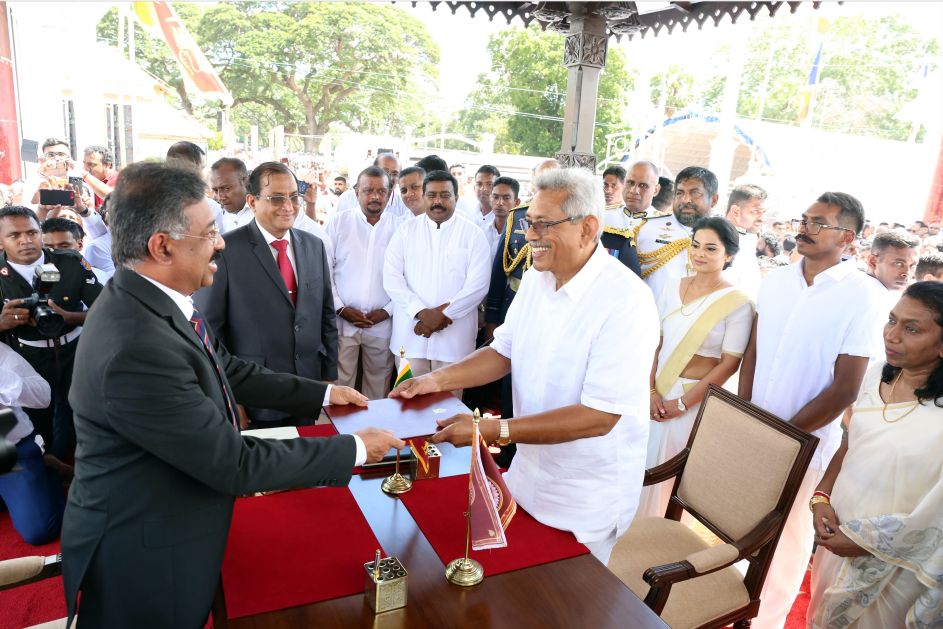
The Easter Sunday deadly bombings cast a long shadow on Sri Lankans as they ventured out to elect their new president over the weekend. It was clear from the results that the issue of nation’s fragile security played a decisive role in influencing the vote.
Gotabaya Rajapaksa, who served as defense chief during the height of Sri Lanka’s insurgency, won the day by securing 52.25% of the votes. His victory was, in many ways, a vote of approval for his brother, Mahinda Rajapaksa’s decade-long presidency. It was during that time the brothers worked together to crush an insurgent movement that had lasted for more than 25 years.
Rajapaksa’s rival, Sajith Premdasa, won 42% of the votes and accepted his defeat with grace by duly recognizing the people’s choice. Other participants in the race could not even get a significant amount of votes. The total turnout on election day was massive, a staggering 83% of registered voters showed up to cast their ballots.
These elections are the first since the Easter Sunday attacks that killed more than 250 people. Weeks and months before the elections, a slew of revelations showed that the government failed to preempt clear intelligence warnings about a looming threat of attacks.
Sri Lankans were afraid of a return to the gory years when bombings were the order of the day and where they had to constantly live in fear. They wanted a leader who could take on the rebels and militants head on and crush them with heavy-handed measures if necessary.
Under these circumstances, Rajapaksa seemed to be the best choice out of the 33 candidates whose names were printed on a 26-inch-long ballot paper on election day.
His chief rival Premadasa also had all the right credentials, being popular and the son of former president Ranasinghe Premadasa who was killed by the Tamil Tigers in 1993 in Colombo. However, it seems he suffered because of the support he received from the incumbent government. Voters believed that poor governance and inefficiency were the cause of the Easter bombings.
The new leader faces a daunting task ahead. Providing peace and security remains on the top of the agenda. But before addressing this, he would first have to heal the ruptures in the body politic of the country.
The elections have laid bare the ethnic, religious and regional fault lines in the nation. Rajapaksa won in the Sinhalese majority areas while Premadasa fared better in the Tamil-dominated north. The country’s Muslim and Christian voters were divided.
Polls show that Sri Lanka is still polarized though the insurgency officially ended in 2009. Minority groups, including more than 2 million Sinhalese, need urgent attention. Similarly, the Muslims, who comprise nearly 10% of Sri Lanka’s 22 million people, have complained that they have been facing increasing attacks after the Easter bombings.
The president would have to deal with this issue and assure his people that as an elected leader he would duly address their concerns. He should also be careful not to repeat the mistakes of the past while tackling the nation’s security matters.
The role of former President Mahinda Rajapaksa will also be critical going forward. His presence and pictures dominated his younger brother’s elections campaign. Some analysts believe that he would, in effect, rule by proxy, thereby creating a slew of legal and constitutional problems for Sri Lanka.
Others speculate that the elder Rajapaksa would try and enter parliament next year when the parliamentary elections are due, and would get the top spot of Prime Minister. In this way he would get a formal role and the two brothers would rule without any legal hindrance.
The new president has pledged to mend fences and heal wounds by creating unity and addressing local fears and global suspicions. But proof is in the pudding, and in the coming months, we will see how he follows through his many promises.



